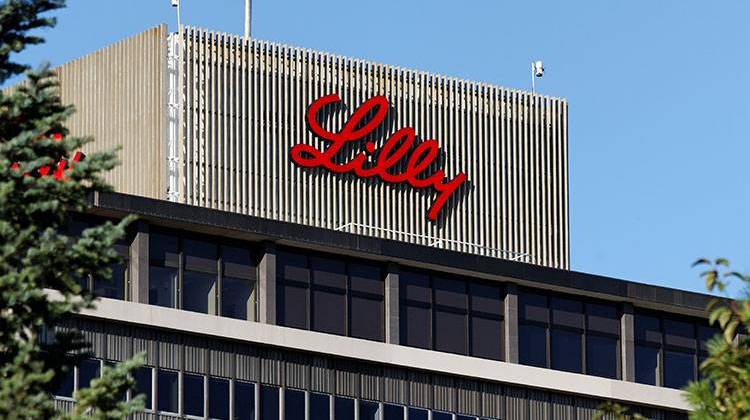Eli Lilly Shares Soar After Company Requests FDA Clearance for Antibody Drug
Shares of Eli Lilly were on the rise on Wednesday after Wall Street learned that the company is seeking FDA clearance for its COVID-19 antibody treatment.
The company announced that it has submitted a request to the U.S. Food and Drug Administration for emergency authorization of the drug LY-CoV555.
LY-CoV555 belongs to a class of treatments known as monoclonal antibodies and is designed to
block viral attachment and entry into human cells. The antibody used a blood sample that was taken from one of the first U.S. patients who recovered from Covid-19.
LY-Cov555 has proven to reduce the rate of hospitalizations for coronavirus patients and has showed similar results when combined with another antibody treatment made by the company, called LY-CoV016.
The combination treatment was used in people who were recently diagnosed with mild-to-moderate Covid-19, said the company. The combination treatment “significantly reduced” viral load at day 11 and was “generally well tolerated with no drug-related serious adverse events.”
Eli Lilly said it plans to submit a request for the combination treatment in November.
The company said it could supply 100,000 doses of LY-CoV555 in October and 50,000 doses of the combination therapy by the fourth quarter this year.
“To be able to quickly provide treatment to patients around the world, Lilly invested in large-scale manufacturing of both antibodies at risk — even before data demonstrated their potential to become a meaningful therapeutic option for COVID-19,” said Eli Lilly in a press release.
CEO David Ricks told CNBC’s Meg Tirrel that the company hasn’t priced the treatment yet, but he wants to keep it “very low-cost or no cost to everybody that needs in when their doctor” prescribes it.
Eli Lilly will adopt a “tiered-pricing approach” that will eventually charge developed countries the same amount for the treatment, and the least-developed countries will have access on “a
philanthropic basis or at least at marginal cost,” said the CEO.
“Those principles we’re laying out there, and then working on the exact details as we speak with this news today,” Ricks said on CNBC’s “The Exchange.”
Disclaimer: We have no position in any of the companies mentioned and have not been compensated for this article.


